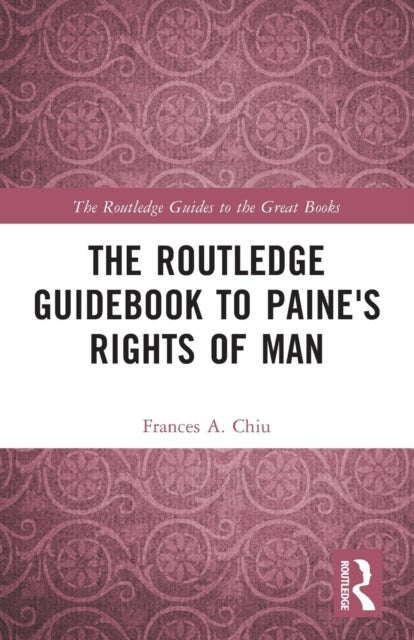
The Routledge Guidebook to Paine's Rights of Man av Frances Chiu
329,-
<P>Upon publication in 1791-92, the two parts of Thomas Paine¿s<I> Rights of Man</I> proved to be both immensely popular and highly controversial. An immediate bestseller, it not only defended the French revolution but also challenged current laws, customs, and government.</P><P></P><I><P>The Routledge Guidebook to Paine¿s Rights of Man</I> provides the first comprehensive and fully contextualized introduction to this foundational text in the history of modern political thought, addressing its central themes, reception, and influence. The <I>Guidebook</I> examines:</P><P></P><UL><P><LI>the history of rights, populism, representative governments, and challenges to monarchy from the 12<SUP>th</SUP> through 18<SUP>th</SUP> century;</LI><LI>Paine¿s arguments against monarchies, mixed governments, war, and state-church establishments;</LI><LI>Paine¿s views on constitutions;</LI><LI>Paine¿s proposals regarding suffrage, inequality, poverty, and public welfare;</LI><LI>Paine¿s revolution in r








